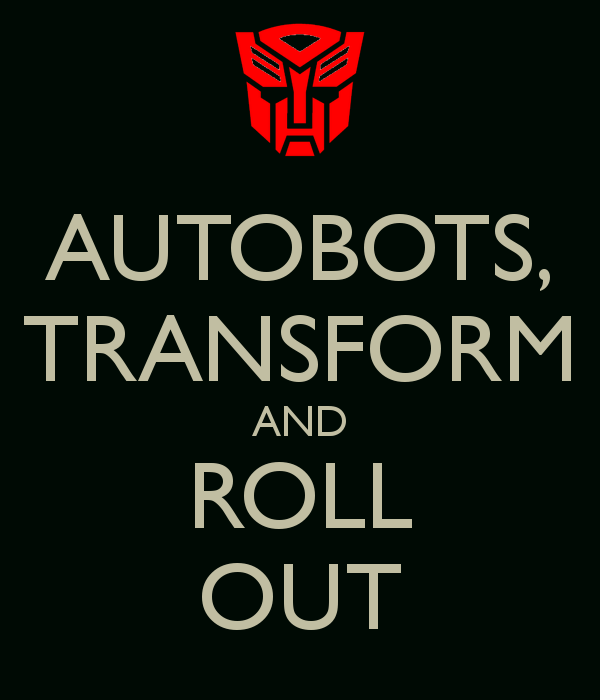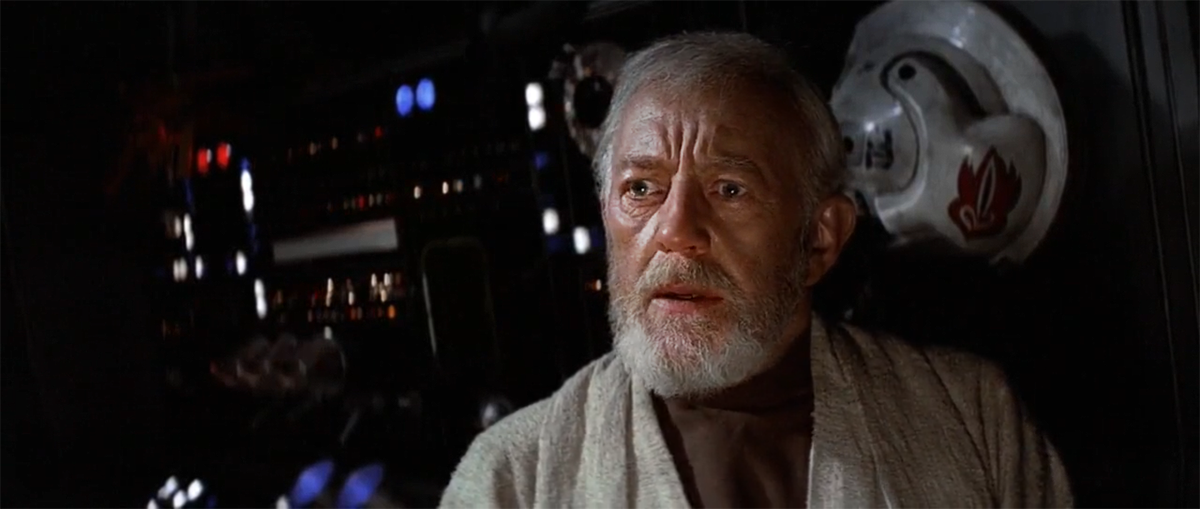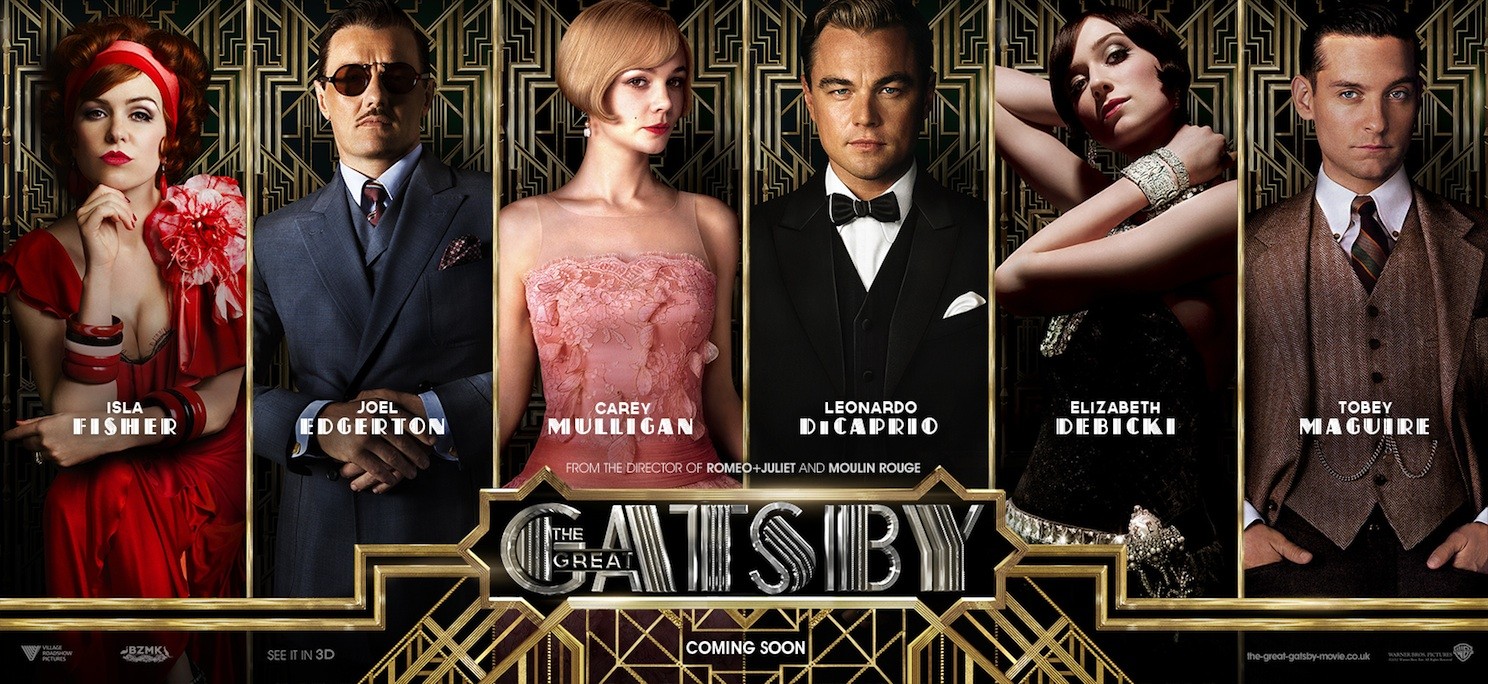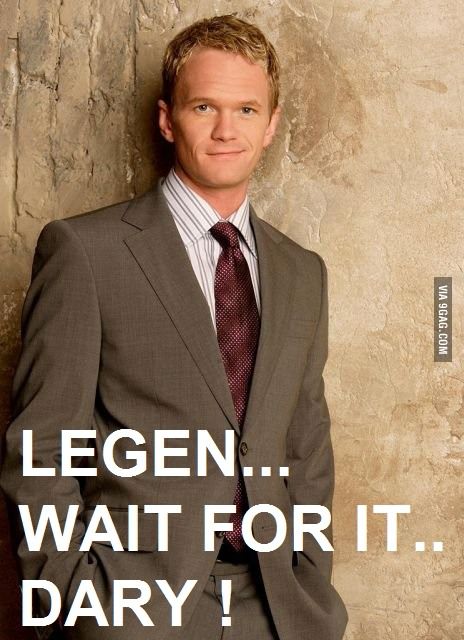(Image from The Keep Calm-O-Matic)
Catchphrases don’t just define fictional characters, sometimes they even echo the tone of an entire show. Take Optimus Prime’s “Autobots, roll out!” for example. It has connotations of a commander and army, wheels and cars, as well as action and fights, which pretty much defines the Transformers franchise. Sergeant Dollah’s “eh eh eh” reflects the Singlish, heartlander tone of Police & Thief.
You can even define such movie quotes like “a great disturbance in the Force,” uttered by almost every Jedi Master in the Star Wars franchise, or Margaret’s fixation on “alfalfa sprouts” in Phua Chu Kang, as catchphrases. So long as there’s repetition of a specific sequence of two or more uncommon words, I’ll consider it a catchphrases.
(Image from Do or do not. There is no try.)
Applying catchphrases in scriptwriting is a little tricky, however. When done judiciously, it gives a certain extra sheen, extra colour to the show. And a programme can have many, many different catchphrases – surely after six episodes of Star Wars, they have more than one memorable quote right?
In Point of Entry, I like to give Uncle Cheong this particular exclamation: “son of a gun.” First of all, it sounds almost like a swear word, a sort of YKWIM. Second of all, it sounds a little bit… retro, which reflects Uncle Cheong’s age. Third, it builds a sort of antagonism and rivalry between Cheong and the said “son of a gun,” giving him more motivation and a greater impetus to stop the villain – it’s personal now. And finally, it’s a homage to a very great man I know, a man who sired me.
But I don’t use it in all the episodes I write (I don’t think it appeared until Season 2). I only use it once per episode. By the third time I’d used it, some members of the pre-production team had started to notice that I liked to write Cheong saying that. If I recall correctly, one of them even said that I gave Cheong a new catchphrase. Yay! Because obviously, I like writing Cheong. He’s an old man that I find easy to write somehow (usually I take more time writing characters who are of a vastly different demographic from me).
(Image from XinMSN)
So just three repetitions, spread over more than three episodes, is enough to create a link in the mind of the audience such that they will associate it as a catchphrase. And again, adding to shades of character and nuances of flavour to the show.
But it can be overdone. Like in The Great Gatsby.
The titular Gatsby spouts “old sport” in about a third of his dialogue. It’s true that his repetition of “old sport” in the climax conveys his desperation, but that doesn’t justify the overuse of these two words everywhere else.
The audience isn’t dumb – we get it by the third time. Instead of being subtle, it’s like bludgeoning us in the face – “hey this is what he always says! remember! remember!”
Even Movies in Tweets lampoons this.
(Image from CHUD.com)
It’s tricky, so here’s four guidelines for effective use of catchphrases in a script.
Once per episode, three times per movie
If it’s TV, then you get to do it once per episode. Only once. Some other books may tell you twice, but that’s overdoing it. If you find multiple places to use the catchphrases, delete all the others and pick the best scene to use it in. It will build up over the season, and you don’t want to wear out that catchphrase before the season finale – if it becomes irritating by then, you’ve overused it.
Movies are slightly different. You only get one shot at it (well, more if there are sequels), so to build that idea of continuity, use it once per Act, at the appropriate time. Use it in a pivotal scene in Act III – it’ll reinforce the emotions that were associate with its utterance in the previous two Acts, and increase the dramatic tension of the scene you place it in.
At cliffhangers
Cliffhangers, Act breaks, commercial breaks – all of these are usually high points in the show. Placing the catchphrase there will cause the audience to associate that feeling with the catchphrase, so the next time you use it, it’ll come with (positive) baggage. Note that this works with comedies too – comedies have cliffhangers, remember?
Exciting situations
A cliffhanger is the subset of an exciting situation, but really, any scene that has severe threats or conflict (every scene should have conflict, by the way) or contains a huge revelation or discovery by the characters is a good place to use it. Remember, you want to grow the feeling a catchphrase evokes. At the end of a scene, with a gag or joke, also works.
Even if another character utters it, it counts one.
Yes. If you want to let someone else besides your favourite character or the usual character say it, it counts as a use of the catchphrase. Don’t cheat.
(Image from 9Gag)
Ultimately, remember that catchphrases are a tool to cement ideas and/or character in the memory of the audience. It’s a turn off if overused, but amazing if well placed. With that in mind, the next thing you should be looking at is – what exactly makes a good catchphrase?





Leave a Reply